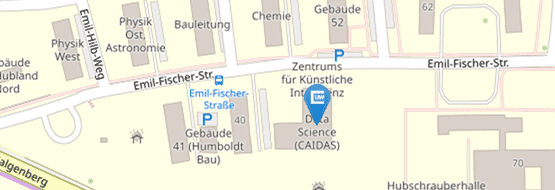Master Thesis
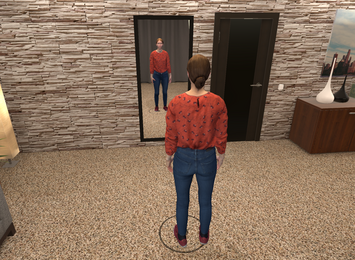
Exploring the Impact of Embodying Personalized Photorealistic Avatars with Idealized Body Weight on Self-Esteem and Body Perception in Virtual Reality
Lena Holderrieth
The aim of this project is to explore whether embodying an avatar with increased attractiveness influences self-esteem. To increase the avatar's attractiveness, the participants can modify the body weight of their avatar to match their ideal. I implement a mirror exposure in virtual reality (VR), where participants will embody personalized photorealistic avatars configured to their self-defined ideal body weight.
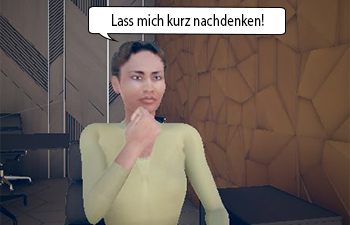
Conversational Fillers to Bridge Response Latency in Human-AI Interaction
Niko Bender
While it is possible to talk to conversational AI systems in an embodied form (e.g., as Virtual Agents), various dependencies on different software and servers can lead to considerable latency in the AI responding to the user. This master thesis uses an embodied artificial intelligence to explore the effects of anthropomorph fillers on the perceived waiting time during pauses in Human-AI interactions and on the perceived trustworthiness of the AI.
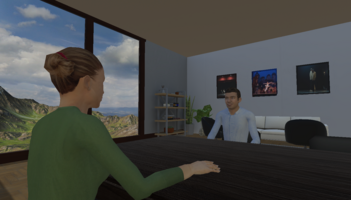
A Virtual Reality Training Platform for Negotiation Skills
Tana Glemser
Professional negotiations can have a significant impact on one's personal future, and a lack of negotiation skills can negatively influence salary and contract conditions. Virtual Reality (VR) training with embodied intelligent agents as negotiation partners can improve negotiation skills. Based on a professional negotiation scenario, the developed VR application can be used to train negotiation skills, as well as research aspects of human-agent interaction.
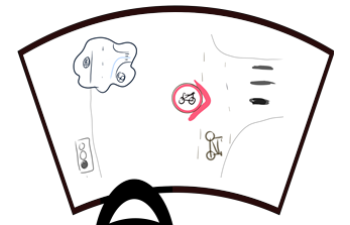
Navigation Concepts for Augmented Reality
Sebastian Slowik
From day to day navigation tasks become more complicated and stressful. One promising technology supporting driver safety and providing good user experience is augmented reality. This thesis develops and evaluates innovative augmented reality concepts for navigation tasks.
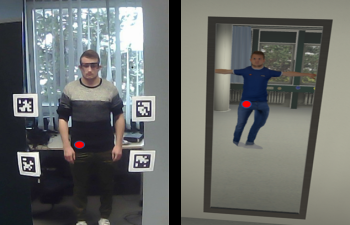
Analysis of Gaze Behaviour during a Visual Body Awareness Task
Christopher Göttfert
This project investigates the comparability of eye-tracking data in the real world, as well as in virtual reality in the context of visual body perception. Highlighting the differences in gaze behavior between both fields is important for the use of eye-tracking in future virtual reality applications.
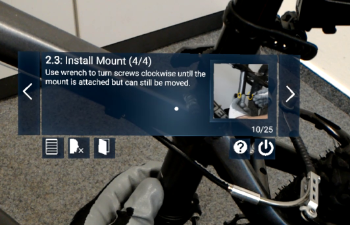
Multi-Device Assembly Instructions
Jonathan Stapf
Does a crossmedial assembly assistance system - combining smart glasses and tablet computer - facilitate procedural instructions for a manual bike part assembly? A prototype system was built and evaluated to examine synergy effects of the devices.
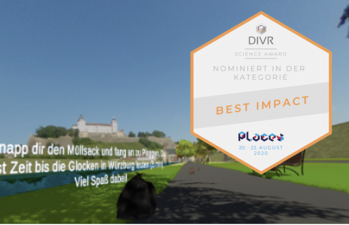
Change by Virtual Reality (VR)
Rebecca Hein
Immersive technologies offer effective facilitators for effective and sustainable behavioral change - an example: "I feel that I can do it in VR, so I can do it in reality" (high feeling of effectiveness and control). VR can, for instance, be used as a new and innovative intervention to reduce the attitude-behavior gap. By altering the perspective and/or the interactivity, the individual feeling of effectiveness and thus the individual environmental behavior should be strengthened.
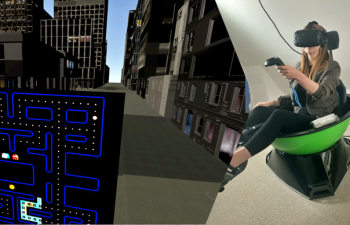
Concept for Reducing Motion Sickness in Future Autonomous Vehicles when Using Virtual Reality
Anna-Lena Hahn
In the future, autonomous vehicles will enable motorists to no longer have to concentrate on traffic. As passengers, former car drivers will be able to use their time while driving for other purposes, such as the consumption of media content. This thesis deals with the possible application of technologies and methods from the research area of virtual reality (VR) in an autonomous driving vehicle.
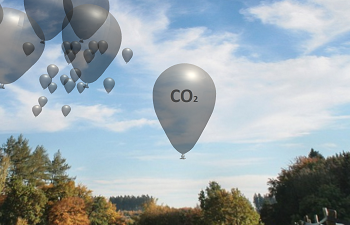
An Immersive Carbon Footprint Calculator
Stephanie Vogt
In this thesis an interactive carbon footprint calculator is developed, which gives users immersive feedback about their carbon dioxide emission. Besides calculating the individual carbon footprint, changes for future pro-environmental actions are designed.
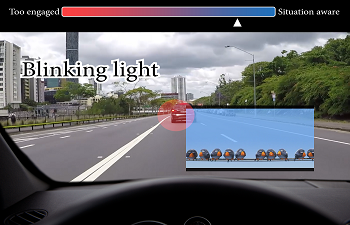
Attention A.I. - For a Better and Safer Experience in Automated Driving
Jens To
Attention A.I. helps to manage drivers’ attention between the joyful experience of watching a video on a head-up display and the safety of monitoring the driving environment in automated vehicles. The system predicts when drivers are likely to switch their attention due to events outside of the vehicle by using machine learning and compares them with the actual behaviour to decide if an intervention is necessary.
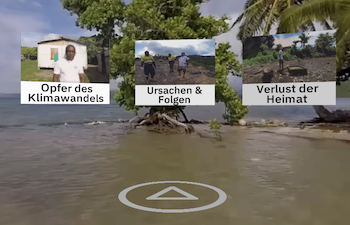
Effects of Interactivity on the Reception of 360° Journalism
Viktoria Horn
Research goal of this project is to examine whether the extension of interactivity in a 360 degree video has a positive effect on credibility, story recall and story sharing intention. Interactive Elements such as info hotspots and scene switch buttons were designed following the MAIN Model by Sundar (2008), which proposes a heuristic approach of understanding credibility of digital media.


